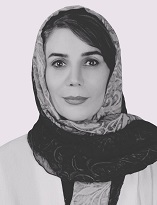Akram Salehi
Chief Editor of the English Journal of International Relations.
It is well known that human beings pay much interest in peace from the ancient time until now. Because the word-peace, apart from being a pleasant word, also refers to the peaceful society and the beautiful world. It can be stated that peace is the greatest and highest goal or hope that everyone wishes to achieve personally and expects to be created in society and in the world. People have been trying by all means to gain peace.
However, as the nature of conflict has changed, so has the understanding of peace? For many years, peace meant the absence of violence and the renewal of governance. Ceasefires and demobilization were mainstays of peace processes. In fact, before the recent changes in international relations, peace was regarded as respecting to the meaning of sovereign rights, equality rights, observance of states immunity and their representatives, respect to territorial integrity of states, non-intervention in each other's internal affairs and peaceful settlement of deputies. Today, however, it is widely recognized that peace is much more than the absence of war as globalization has changed the concept of international peace. In this period, the essence of threats has been changed so as to the threats have been extended from military aspect to other aspects including: poverty and starvation, terrorism, smuggling and organized crimes, breakout of epidemic such as Coronavirus disease, uncontrolled immigration, destruction of environment and human rights violation, justice, reconciliation and broad participation, including the inclusion of women, youth, indigenous peoples and others. However massive military spending and new investments in modernizing nuclear weapons have left the world over armed and peace underfunded. Actually today’s United Nations peacekeeping budget is less than half of one percent of global military spending, meaning too often that peace operations face a gap between their goals and the means to achieve them. The economic burden of military spending is especially high for the most vulnerable within societies. When Governments choose armaments over much needed social programs such as access to clean water and sanitation, and high-quality education and healthcare the human cost is often high. One result can be that individuals and communities are less secure. We live in a time of formidable challenges. The global world order is seeing profound and sometimes unpredictable shifts. In an evermore globalizing world, the efforts to foster cooperation are vital to meet global crises and promote the common good. Within these challenges are dangers, but also opportunities not only to reduce the world’s armaments and military spending, but also to think about disarmament and security in new ways, making the security of the world’s people central to the disarmament and security agenda. Hence, if we are not peaceful, we can't share peace with others, even those we love, and those who live under the same roof. If we are peaceful, everyone in our family, our entire society, will benefit from our peace. Therefore as Obama said: “This is the moment when we must renew the goal of a world without nuclear weapons. This is the moment to begin the work of seeking the peace of a world without nuclear weapons.”

